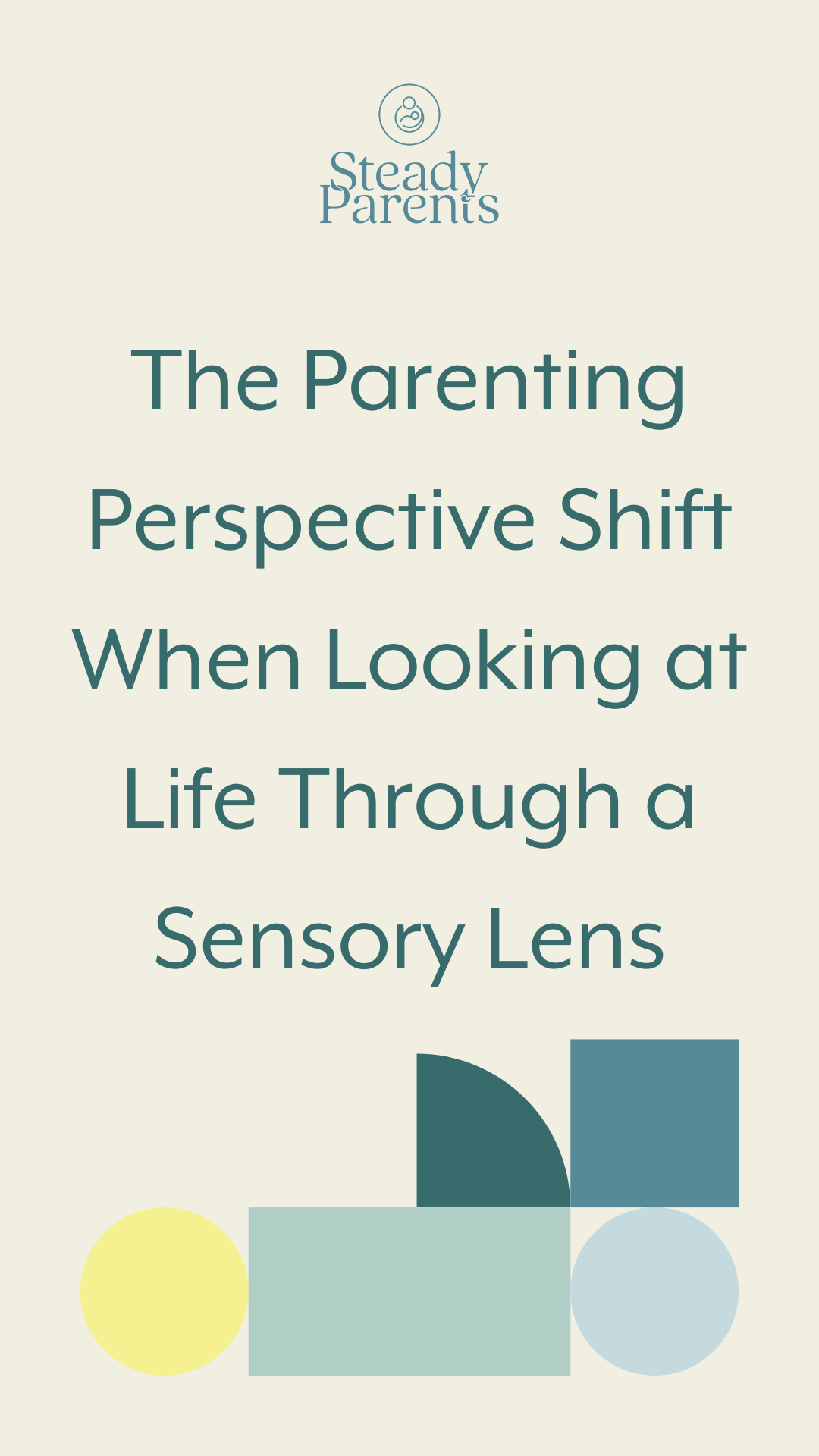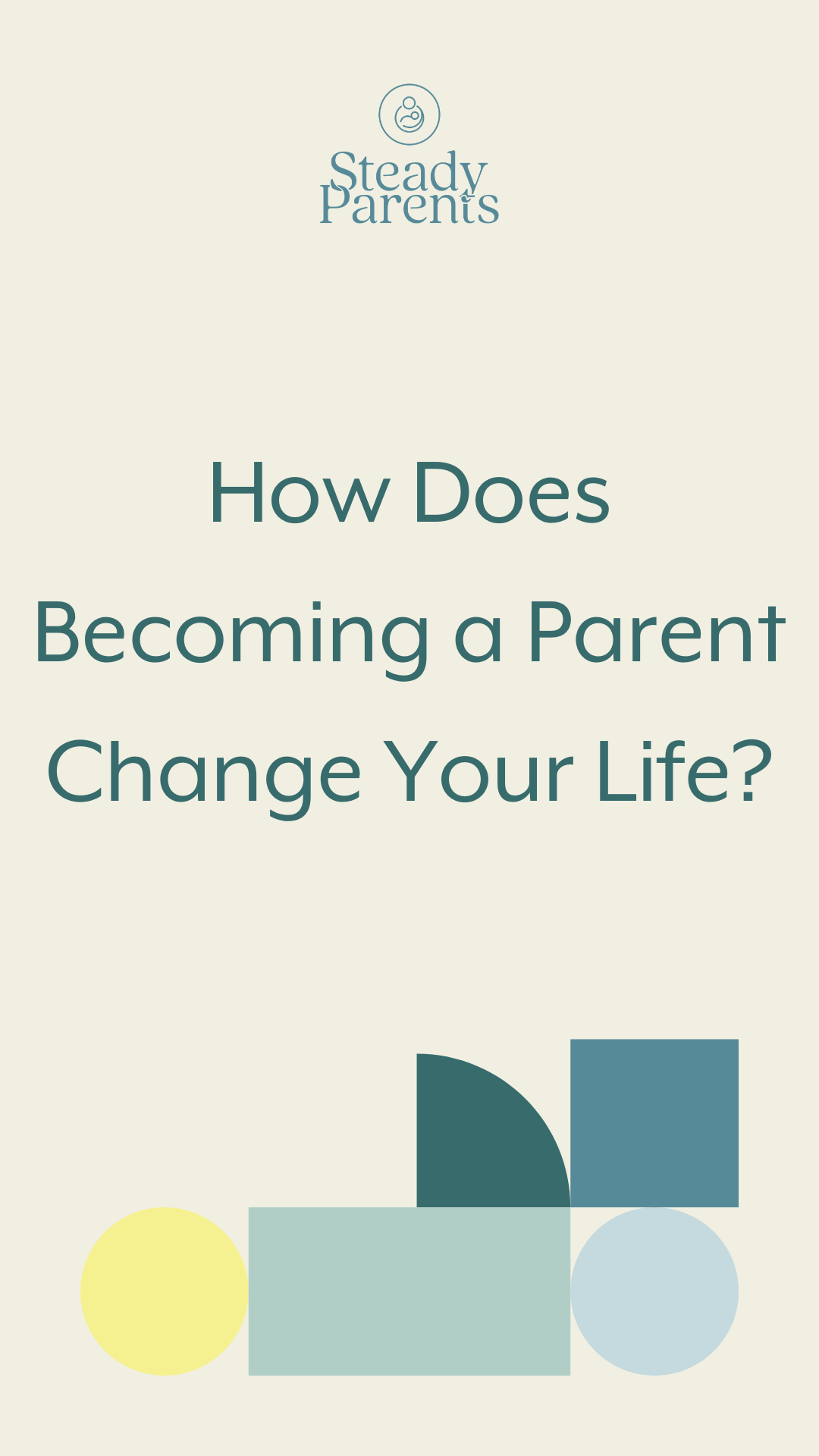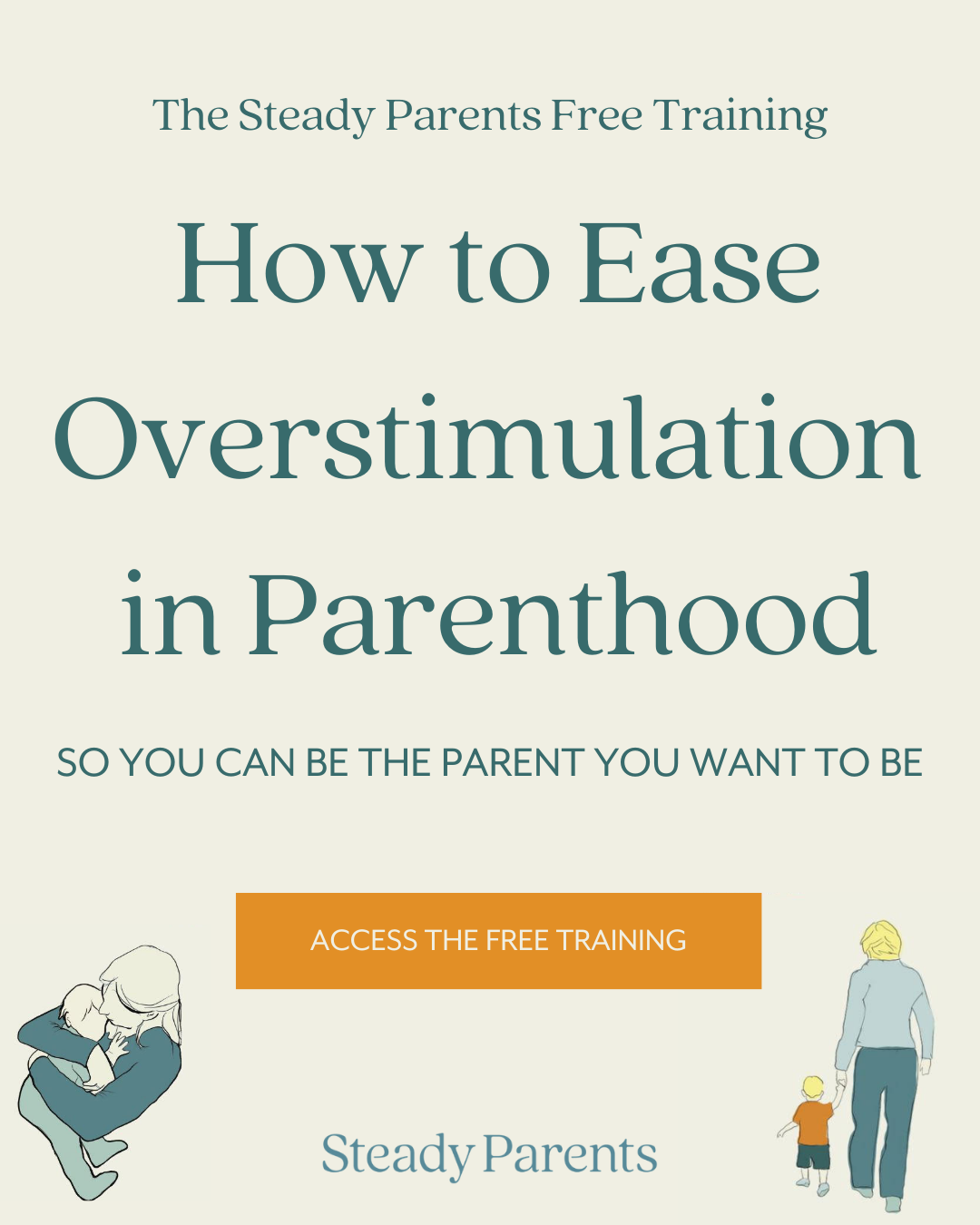The Parenting Perspective Shift When Looking at Life Through a Sensory Lens
Did your perspective on life shift when you became a parent?
Elizabeth Stone said it best when she said, “Making the decision to have a child - it is momentous. It is to decide forever to have your heart go walking around outside your body.” (source: GoodReads)
In this blog post, we’ll discuss the changes adults go through when beginning their new parent role and explore what can shift for you looking at life and parenting through a sensory lens.
How Does Becoming a Parent Change Your Life?
There's no doubt, becoming a parent can cause changes in identity, making you feel and sense things more deeply. This can be both a beautiful and overwhelming experience.
On the one hand, you are told to “savor every moment” and “don’t blink or you’ll miss it.” But there are many challenging moments in the day to day of being a parent, that it’s normal to find yourself almost wishing it away.
Before having kids, you are only responsible for yourself. For the most part, you can sleep when you want, eat when you want, and have only what you want in your home.
This totally changes after having kids and when you are in the phase of raising babies and young children, the lack of sleep, self-care, and excess clutter in your home can become paralyzing.
Parenthood changes our identity and ability to regulate our nervous system and our perspective on life in many ways. Here are just a few ways.
Priorities and Perspective
Shift in Priorities
Parenthood often reshapes priorities. The well-being and needs of the child become a central focus, leading to a reprioritization of personal and professional goals.
According to The Mom Project, an estimated 43% of women leave the workforce after having kids (TheBump.com). Whether due to lack of childcare options or a desire to be home with their kids, women especially are more likely to shift their priorities from career focused to family-focused.
Long-Term Perspective
Parents tend to adopt a more long-term perspective, thinking about the future and making decisions that consider the well-being and development of their child.
Becoming a parent causes people to look more closely at their finances, create a will, and move to the suburbs in order to provide the best future opportunities for their children.
Lifestyle Changes
Routine and Schedule
Parents experience a significant shift in their daily routines. Sleep patterns, meal times, and leisure activities may be adjusted to accommodate the needs of the child.
Being hungry and tired can greatly affect our moods when we’re parents, and though we typically adjust to having less sleep, the lack of control can be a stressor for our nervous system.
Social Life
Socializing patterns can change as parents may spend more time with other families or focus on child-centric activities. Late nights and spontaneous plans may become less frequent.
If you don’t have family nearby or reliable childcare, it may be hard to spend time with friends doing activities you used to enjoy before kids.
Emotional Impact
Increased Emotional Depth
Parenthood brings about intense emotions. The joy, love, and sense of responsibility for a child often lead to a deeper emotional experience.
There is a beautiful sense of pride many parents feel and parents can become more soft and tender-hearted.
Vulnerability and Worry
Parents may find themselves more vulnerable emotionally as they worry about the safety, health, and future of their child.
Depression and anxiety can also increase in the postpartum period. In fact 1 in 10 dads experience this emotional shift (UTSWmed.org).
Relationship Dynamics
Partnership Changes
The dynamic between partners can evolve as they navigate the challenges and joys of parenting together. Roles and responsibilities may be reassigned to accommodate the needs of the child.
If you notice your partners sensory needs shifting and you’re not sure how to deal as a couple, check out my recent blog post Navigating Sensory Differences in Marriage: Understanding and Communicating Your Needs.
Extended Family Relationships
Interactions with extended family members, such as grandparents, often take on increased importance as they become integral to the support network.
Though family gatherings may become more forced when you have kids making the holiday season especially difficult.
Time Management
Limited Personal Time
Parents often find that their personal time is more limited. Balancing work, parenting responsibilities, and personal pursuits requires efficient time management.
Flexibility and Adaptability
The ability to adapt to unexpected changes becomes crucial. Parents learn to be flexible and adjust plans as the needs of the child arise.
Developing new routines that work for both parents and children is critical to maintaining a positive sensory experience.
Financial Considerations
Budgeting and Expenses
Parenthood often involves increased financial responsibilities. Parents may need to budget for child-related expenses such as education, healthcare, and extracurricular activities.
This can cause added stress and anxiety for parents, adding to the invisible mental load of parents.
Long-Term Financial Planning
Planning for the child's future, including education and other major life events, becomes a key consideration in financial decision-making.
Becoming a parent is a profound, complex journey that brings about changes in one's priorities, lifestyle, emotions, relationships, time management, and financial considerations. Each individual's experience is unique, but these changes are common aspects of the transformative process of becoming a parent.
The Parenting Perspective Shift That Comes When You Start Looking at Life Through a Sensory Lens
Looking at life through a sensory lens can bring about a shift in perspective and experiences that leads to changes in the way we process sensory information.
Here are some ways in which this shift can occur:
Heightened Awareness
A sensory lens encourages you to be more aware of your surroundings and the details that might be easily overlooked. It can enhance your appreciation for the beauty of the world around you.
Do you ever just go on a mid morning walk while your kids are at school? Did you enjoy walking outside as much before you had kids? Bam, perfect example. I know so many parents who appreciate the grandness and beauty more being outside since having kids.
Mindfulness
Focusing on your senses can be a gateway to practicing mindfulness. Engaging with each sensory experience in the present moment can lead to a deeper connection with your surroundings and inner self.
Emotional Connection
Sensory experiences are often tied to emotions. Seeing, hearing, touching, tasting, and smelling things can trigger memories and evoke specific feelings, fostering a more emotionally rich perspective on life.
Empathy
Understanding and appreciating different sensory experiences can lead to increased empathy. Recognizing that others may perceive the world differently can enhance your ability to relate to their unique perspectives.
Creativity
When you become a parent you have to use creativity, imagination, and problem solving in your everyday life.
A sensory lens can fuel creativity by inspiring new ideas and perspectives. Artists, writers, and innovators often draw from sensory experiences to create meaningful and impactful work.
Reduced Stress
Engaging with your senses mindfully can have a calming effect and reduce stress. Taking moments to appreciate the sensory aspects of your environment can provide a sense of tranquility.
Deep breathing, counting, and pausing to notice our senses are some skills I teach in The Steady Parents Signature Program that allow us to calm down our regulatory system even in times of stress and overstimulation.
Connection with Nature
Observing nature through a sensory lens can deepen your connection with the natural world. Appreciating the sights, sounds, and textures of the outdoors can lead to a greater sense of well-being.
Improved Relationships
Paying attention to the sensory preferences of those around you can lead to better communication and understanding in relationships. Recognizing and respecting different sensory needs can enhance connection and rapport.
When you start to experience life through a sensory lens, you can better accept that your kids aren’t trying to annoy you, they are likely feeling exhausted, overwhelmed, overstimulated, or under-stimulated.
You can also give yourself more grace as a parent, knowing that you are doing the best you can given your unique circumstances and that “it makes sense” that you are tired, stressed, anxious, or the many negative feelings that come up during challenging parenting situations.
In Summary
Adopting a sensory lens can lead to a parenting perspective shift, leading to increased mindfulness, emotional richness, creativity, and a deeper connection with both yourself and the world around you.
I challenge you to start looking at life through a more sensory lens and see how your nervous system responds!
If you need support with this, I offer 1:1 coaching to come up with a customized strategy you can use to reach a steady state in your parenting journey.








